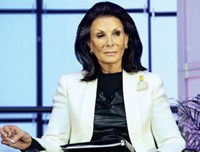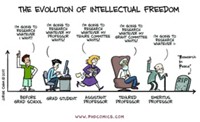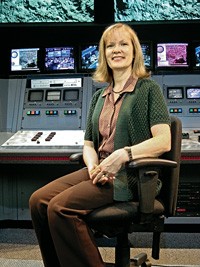Advertisement
Grab your lab coat. Let's get started
Welcome!
Welcome!
Create an account below to get 6 C&EN articles per month, receive newsletters and more - all free.
It seems this is your first time logging in online. Please enter the following information to continue.
As an ACS member you automatically get access to this site. All we need is few more details to create your reading experience.
Not you? Sign in with a different account.
Not you? Sign in with a different account.
ERROR 1
ERROR 1
ERROR 2
ERROR 2
ERROR 2
ERROR 2
ERROR 2
Password and Confirm password must match.
If you have an ACS member number, please enter it here so we can link this account to your membership. (optional)
ERROR 2
ACS values your privacy. By submitting your information, you are gaining access to C&EN and subscribing to our weekly newsletter. We use the information you provide to make your reading experience better, and we will never sell your data to third party members.
Biological Chemistry
Of Mice And Men
by Linda Wang
July 24, 2006
| A version of this story appeared in
Volume 84, Issue 30
INTUITION, by Allegra Goodman, Dial Press, 2006, 352 pages $25 (ISBN: 978-0-385-33612-8)
"Intuition," the latest novel from best-selling author Allegra Goodman is a timely, thought-provoking work that will surely conjure up memories of last year's stem cell scandal involving South Korean scientist Woo Suk Hwang (C&EN, Jan. 16, page 25). The book brilliantly portrays the enormous pressures to publish, questions one woman's intuition, and challenges us all to think about what we would do if faced with a similar situation.
"Intuition" begins with Sandy Glass and Marion Mendelssohn, male and female codirectors of a struggling cancer lab at the fictitious Philpott Institute in Cambridge, Mass. Sandy is an extrovert who enjoys being in the media spotlight; Marion is circumspect and advocates a more cautious approach. They couldn't be more different, but they have a unique bond.
Hungry for grant money and desperate for positive results, Sandy and Marion refuse to waste any more resources on postdoc Cliff Bannaker, whose years of work developing a variant of respiratory syncytial virus to transform cancer cells into normal cells have gone nowhere.
But overnight, his experiments begin to work—60% of cancer-induced mice injected with the R-7 strain of the virus go into remission. Despite Marion's reservations, Sandy rushes the preliminary results to publication in Nature and instigates a media frenzy. Cliff is hailed as a scientific hero, and Sandy's enthusiasm spreads like wildfire. The National Institutes of Health awards the lab with the long-sought grant. Before long, everyone in the lab is giddy with excitement and pouring their resources into Cliff's work. Everyone but Cliff's resentful ex-girlfriend and coworker, Robin Decker.
Robin is forced to abandon her own research to work on R-7. Unable to reproduce Cliff's results, she begins to suspect fraud. One day, she makes a disturbing discovery that eventually almost destroys the lab, and even Robin begins to question her own intuition.
This story is told with such accuracy and insight into the scientific process that you'd think the novelist herself was a scientist. On the contrary, Goodman majored in English and philosophy at Harvard University and has a Ph.D. in English from Stanford University.
But make no mistake; Goodman is a researcher in the truest sense of the word. She immersed herself at Whitehead Institute for Biomedical Research, in Cambridge, shadowing researchers Jonathan B. Singer, Lisa N. Spiro, and Jeanne Winsten. For mouse matters, she consulted Philip Standel, who oversees the Bar Harbor, Maine-based Jackson Laboratory's program for breeding laboratory mice.
Goodman captures the idiosyncrasies of lab life with amazing attention to detail. For example, the researchers in the Glass-Mendelssohn lab are from diverse backgrounds, reflecting the heterogeneous makeup of many labs today. There's Xiang Feng, a postdoc from China; Natalya, a lab tech from Russia; Prithwish, a postdoc from Sri Lanka; Aidan, a lab tech who is homosexual; and finally, Glass, who is Jewish.
There is a reference to Marion's supporting role in the lab, which may refer to the glass ceiling women still face in the scientific hierarchy. Goodman writes that Marion "had a unique mind. But Sandy's language, Sandy's vision, and Sandy's presence went out into the world. Like a woman, she would stand in Sandy's shadow. Like a woman, she would listen quietly, and work behind the scenes on details, while Sandy appropriated the bigger picture."
Goodman is also attuned to scientific jargon and at one point has Sandy's teenage daughter, Kate, asking Cliff whether he's a "Mud-Phud" (M.D./Ph.D.).
Goodman breathes life into the characters, who enrich the lab with their personal interests and sense of humor. They are musically gifted, like Aiden with his crisp, sweet baritone. They like to have a pickup game of volleyball and go for a drink after work. And they tease each other to no end. Feng, for example, keeps meticulous records but always dismisses his own results as minor, or even accidental. "It's random luck, he'd say whenever he published an article or research note." The other postdocs begin a collection of Feng's catchphrases in their lab books, calling them "Fungi." And Marion has a quirk of her own: She knits while listening to her postdocs give their talks. It's easy to identify with these characters.
Goodman even examines the role of the media and its involvement in the public mistrust of science: "Journalists just want to be first. It's just a race to them. They don't actually care about accuracy."
"Intuition" has it all: science, mystery, romance, and politics. It is a tale of faith, suspicion, jealousy, betrayal, and vindication. It forces us to examine how far to trust our own intuition. This book is excellent—a real page-turner. I highly recommend it for scientists and nonscientists alike.
Linda Wang is a C&EN assistant editor based in Washington, D.C.






Join the conversation
Contact the reporter
Submit a Letter to the Editor for publication
Engage with us on Twitter